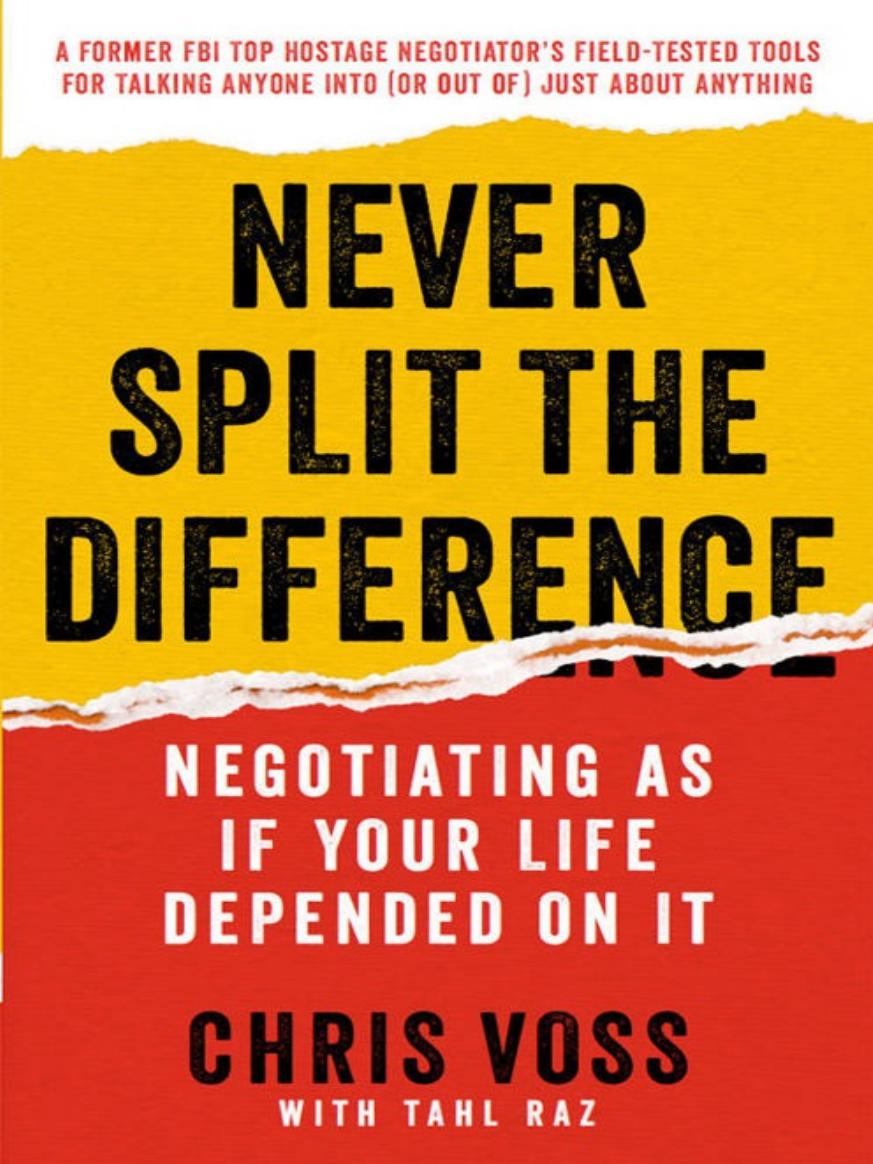Never Split the Difference: Negotiating as if Your Life Depended on It by Chris Voss

Author:Chris Voss [Voss, Chris]
Language: eng
Format: epub, azw3, pdf
ISBN: 9780062407801
Amazon: 0062407805
Publisher: HarperBusiness
Published: 2016-05-16T16:00:00+00:00
KEY LESSONS
Compared to the tools discussed in previous chapters, the techniques here seem concrete and easy to use. But many people shy away from them because they seem manipulative. Something that bends your counterpart’s reality must be cheating, right?
In response, let me just say that these tools are used by all the best negotiators because they simply recognize the human psyche as it is. We are emotional, irrational beasts who are emotional and irrational in predictable, pattern-filled ways. Using that knowledge is only, well, rational.
As you work these tools into your daily life, remember the following powerful lessons:
■All negotiations are defined by a network of subterranean desires and needs. Don’t let yourself be fooled by the surface. Once you know that the Haitian kidnappers just want party money, you will be miles better prepared.
■Splitting the difference is wearing one black and one brown shoe, so don’t compromise. Meeting halfway often leads to bad deals for both sides.
■Approaching deadlines entice people to rush the negotiating process and do impulsive things that are against their best interests.
■The F-word—“Fair”—is an emotional term people usually exploit to put the other side on the defensive and gain concessions. When your counterpart drops the F-bomb, don’t get suckered into a concession. Instead, ask them to explain how you’re mistreating them.
■You can bend your counterpart’s reality by anchoring his starting point. Before you make an offer, emotionally anchor them by saying how bad it will be. When you get to numbers, set an extreme anchor to make your “real” offer seem reasonable, or use a range to seem less aggressive. The real value of anything depends on what vantage point you’re looking at it from.
■People will take more risks to avoid a loss than to realize a gain. Make sure your counterpart sees that there is something to lose by inaction.
Download
Never Split the Difference: Negotiating as if Your Life Depended on It by Chris Voss.azw3
Never Split the Difference: Negotiating as if Your Life Depended on It by Chris Voss.pdf
This site does not store any files on its server. We only index and link to content provided by other sites. Please contact the content providers to delete copyright contents if any and email us, we'll remove relevant links or contents immediately.
The Brazilian Economy since the Great Financial Crisis of 20072008 by Philip Arestis Carolina Troncoso Baltar & Daniela Magalhães Prates(133688)
International Integration of the Brazilian Economy by Elias C. Grivoyannis(107300)
The Art of Coaching by Elena Aguilar(53158)
Flexible Working by Dale Gemma;(23282)
How to Stop Living Paycheck to Paycheck by Avery Breyer(19684)
The Acquirer's Multiple: How the Billionaire Contrarians of Deep Value Beat the Market by Tobias Carlisle(12305)
Thinking, Fast and Slow by Kahneman Daniel(12216)
The Radium Girls by Kate Moore(12009)
The Art of Thinking Clearly by Rolf Dobelli(10403)
Hit Refresh by Satya Nadella(9115)
The Compound Effect by Darren Hardy(8917)
Tools of Titans by Timothy Ferriss(8357)
Atomic Habits: Tiny Changes, Remarkable Results by James Clear(8314)
Turbulence by E. J. Noyes(8014)
A Court of Wings and Ruin by Sarah J. Maas(7801)
Change Your Questions, Change Your Life by Marilee Adams(7727)
Nudge - Improving Decisions about Health, Wealth, and Happiness by Thaler Sunstein(7687)
How to Be a Bawse: A Guide to Conquering Life by Lilly Singh(7464)
Win Bigly by Scott Adams(7179)
